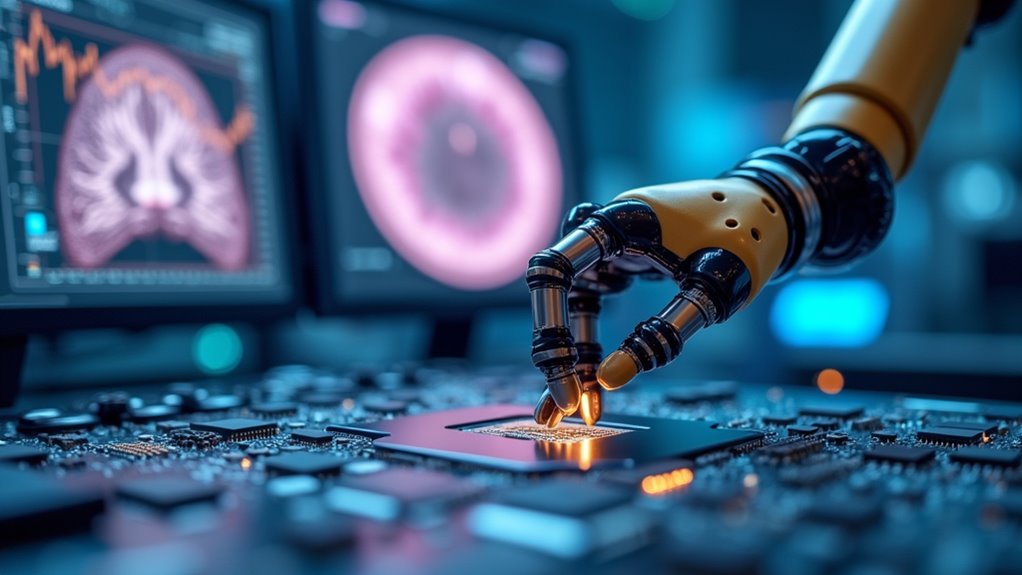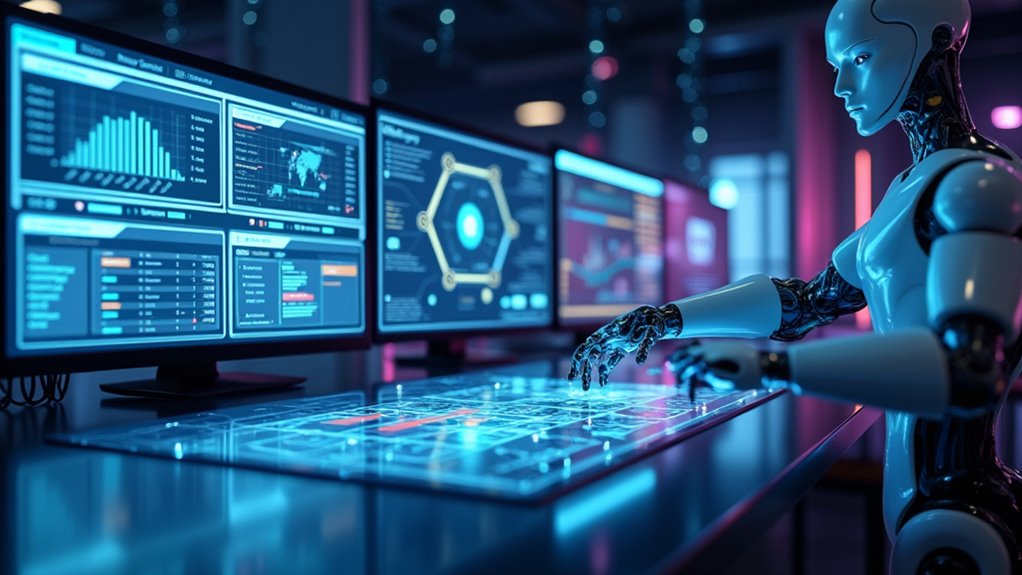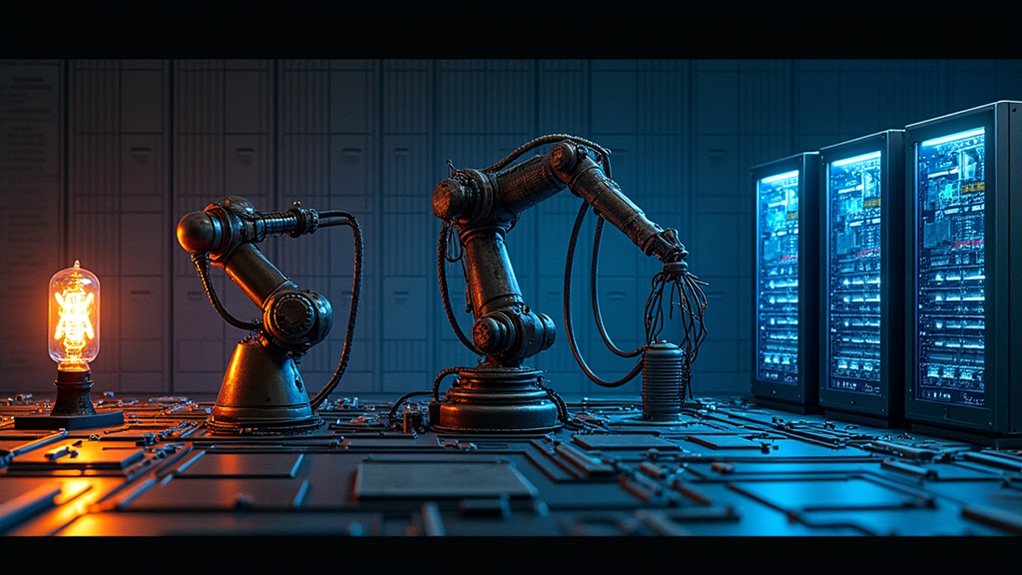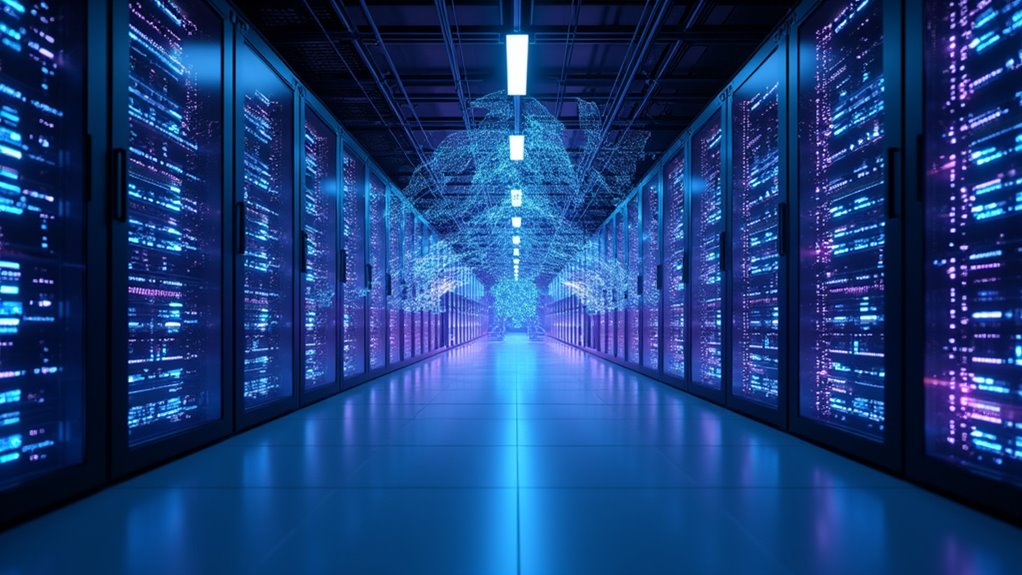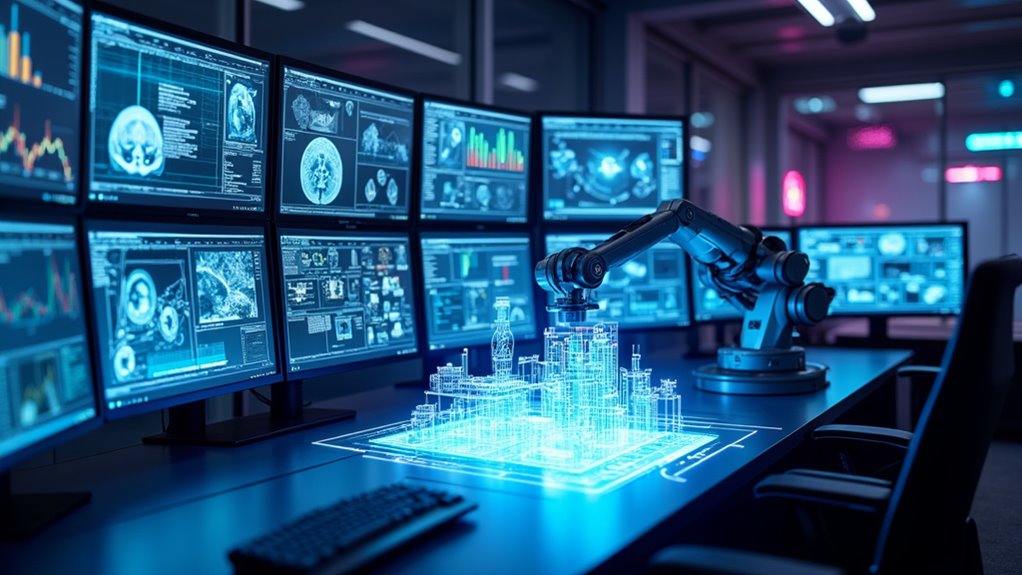The AI platform race is heating up for 2025, with ChatGPT and Claude becoming business essentials rather than luxuries. Microsoft Azure AI offers custom machine learning solutions, while Jasper AI and Anyword dominate content creation. For automation, UiPath and Zapier eliminate tedious tasks, while Webex and Tidio transform customer service. Companies ignoring these tools risk digital irrelevance. The choice between platforms isn’t just technological—it’s existential for business survival in tomorrow’s landscape.

As organizations scramble to gain competitive advantage in an increasingly AI-driven landscape, the platforms they choose in 2025 will make or break their digital transformation efforts. The conversation around AI Ethics and AI Accessibility has never been more critical—companies aren’t just asking what these tools can do, but who can use them and at what social cost.
ChatGPT continues to dominate the conversational AI space, offering businesses robust brainstorming capabilities while Claude has carved out a niche with superior coding features. The new ChatGPT 4o model delivers fast performance and intelligence that dramatically improves user experience. You simply can’t afford to ignore these platforms if you want to stay relevant.
Ignoring ChatGPT and Claude isn’t an option—they’re no longer just AI tools, but business necessities for survival in 2025’s digital arena.
Content creation tools are revolutionizing how businesses communicate. Jasper AI helps marketing teams generate SEO-friendly content in minutes, not days. Tired of bland copy? Try Anyword, which specializes in on-brand messaging tailored to specific marketing objectives.
Buffer AI Assistant lets you repurpose existing content—because why reinvent the wheel when you can just add better spokes?
Data analysis is getting a major upgrade with Microsoft Azure AI offering thorough services for custom machine learning models. GoSearch delivers AI-powered insights without requiring a data science degree. UiPath has become a frontrunner in robotic process automation for businesses seeking to eliminate repetitive tasks from their workflows. Even ChatGPT now processes visual data, extracting meaningful insights from charts you’d otherwise spend hours deciphering.
Customer service is transforming through platforms like Webex Contact Center AI Solutions. Their automatic note-taking and real-time translations mean your team can focus on customers, not keyboards. Businesses can implement AI-powered customer service chatbots that operate 24/7 and significantly enhance the overall customer experience.
Implement Tidio AI or Hiver to slash response times by up to 60%—your customers won’t wait while your competitors deploy these solutions.
Project management tools Asana and ClickUp now feature AI integration that dramatically streamlines workflows. Set up Zapier’s automated workflows and watch tedious tasks disappear from your team’s plate.
Visual creation has been democratized by Canva Magic Studio and Midjourney, letting even non-designers create professional-looking assets in minutes.
The AI platform landscape of 2025 won’t just change how we work—it’ll redefine what work actually means. Choose wisely, or watch your competition pull ahead at algorithmic speed.
Frequently Asked Questions
How Much Technical Expertise Is Required for Implementing These Platforms?
Implementing AI platforms generally requires varying levels of expertise.
Modern solutions feature user friendly interfaces that greatly reduce the technical barrier, allowing non-specialists to deploy basic AI functionalities. However, advanced customization still demands programming knowledge and data science skills.
Most platforms now include automated troubleshooting capabilities that help users navigate common issues. The technical requirements ultimately depend on implementation complexity—simple applications need minimal expertise, while enterprise-wide deployments require specialized knowledge of both AI principles and system integration.
What Security Measures Protect Data on These AI Platforms?
Modern AI platforms employ robust security measures to protect sensitive data.
Multi-layered data encryption safeguards information both in transit and at rest, while sophisticated access controls guarantee only authorized personnel interact with AI systems.
These platforms typically implement AI-driven threat detection, automatically identifying suspicious activities before they become problems.
Homomorphic encryption allows computation on encrypted data without exposure, and extensive compliance frameworks address regulatory requirements.
Don’t be fooled by flashy features—always verify these security measures before trusting any platform with your data.
Can These Platforms Integrate With Legacy Enterprise Systems?
Most AI platforms offer robust legacy system compatibility through middleware solutions and API wrappers.
Enterprise software integration is achievable, but not without challenges. GoSearch, UiPath, and Azure AI specifically excel at connecting with older systems—just expect some technical hurdles.
Cloud-based options like Salesforce Einstein reduce infrastructure strain, while platforms like TensorFlow require more customization.
How Do Subscription Costs Compare Between Different AI Platforms?
AI platform subscription costs vary dramatically based on usage patterns and feature needs.
The cost breakdown reveals cloud services like AWS SageMaker starting at $0.10/hour while Azure OpenAI begins at $1.50 per 1,000 transactions.
Google offers $300 in initial credits but jumps to $3.15 per node hour afterward.
Specialized platforms like H2O.AI command premium pricing ($5,000-$50,000 monthly).
Smart buyers should evaluate pricing models carefully—pay-as-you-go options typically benefit smaller operations while enterprise-level subscriptions offer better value at scale.
Which Platforms Offer the Best Multilingual Support Capabilities?
For multilingual support capabilities, OpenAI’s GPT-4 and DeepL Translator lead the pack.
GPT-4 excels at contextual understanding across languages, while DeepL is renowned for its superior translation accuracy.
Google’s offerings (Vertex AI and Cloud Translation) support over 100 languages, making them ideal for global multilingual chatbots.
Zendesk AI integrates well with existing support systems.
Companies should evaluate these platforms based on their specific language needs and desired accuracy levels rather than just selecting the trendiest option.

